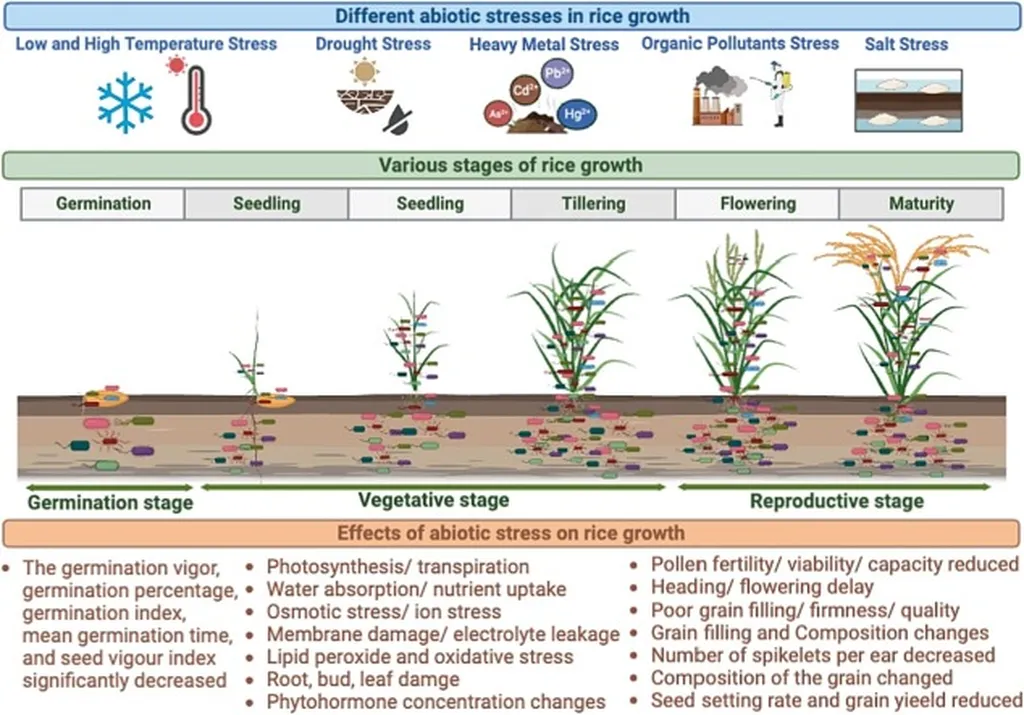In the face of a growing global population and escalating food demands, researchers are turning to innovative agricultural technologies to bolster food security and promote sustainable farming practices. A recent study published in *BMC Plant Biology* has shed light on the potential of biological agents and plant growth regulators to enhance rice growth and regenerative capacity, offering promising avenues for the agriculture sector.
The study, led by Hang Zhou from the School of Tropical Agriculture and Forestry at Hainan University, explored the effects of different treatments on ratoon rice—a method of rice cultivation that involves harvesting multiple crops from the same plant. The research team set up four treatments: a plant growth regulator (T1), a biological agent made from plant materials (T2), a microbial agent (T3), and a control group (CK).
The findings revealed that the microbial agent (T3) significantly up-regulated key genes and metabolites, including OsHsfC1b, OsCNGC16, OsOSM1, OsSAPK9, and DTH2, as well as spermine, citric acid, riboflavin, and shikimic acid. “These results suggest that the microbial agent has a profound impact on the genetic and metabolic pathways of rice plants, which could lead to improved growth and yield,” Zhou explained.
Similarly, the plant-based biological agent (T2) up-regulated key genes such as OsAPT2, OsZIP8, OsCIPK14, OsCIPK7, OsPR4c, and OsVIT2, influencing carbohydrate, lipid, and amino acid metabolism. Both biological agents and the plant growth regulator significantly increased stem dry matter accumulation and yield in the first season, demonstrating their potential to enhance rice productivity.
Moreover, the treatments significantly boosted the final regenerative capacity of the rice variety Yongyou4949 at the fifth node from the top. For the variety Shuangliangyou138, the plant growth regulator (T1) and the plant-based biological agent (T2) significantly increased both the maximum and final regenerative capacities.
The implications of this research for the agriculture sector are substantial. As the global demand for food continues to rise, the adoption of ratoon rice cultivation coupled with these innovative treatments could lead to increased yields and more sustainable farming practices. “This study provides valuable insights into the development of more effective agricultural management strategies, which are crucial for the sustainable development of agriculture,” Zhou noted.
The findings also highlight the potential for biological agents and plant growth regulators to play a pivotal role in addressing global food security challenges. By enhancing the regenerative capacity and yield of rice crops, these treatments could contribute to a more resilient and productive agricultural system.
As the agriculture sector continues to evolve, the integration of advanced biotechnologies and plant growth regulators offers a promising path forward. This research not only underscores the importance of ongoing innovation in agricultural practices but also paves the way for future developments that could revolutionize food production and ensure a more secure and sustainable future for all.

